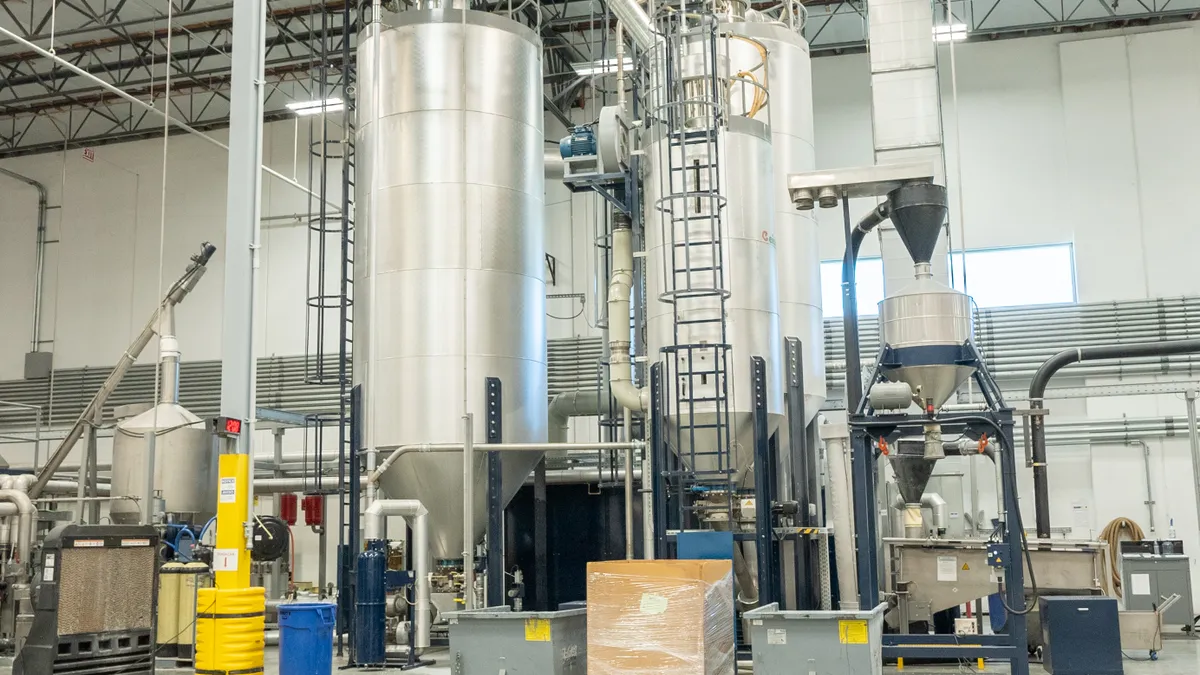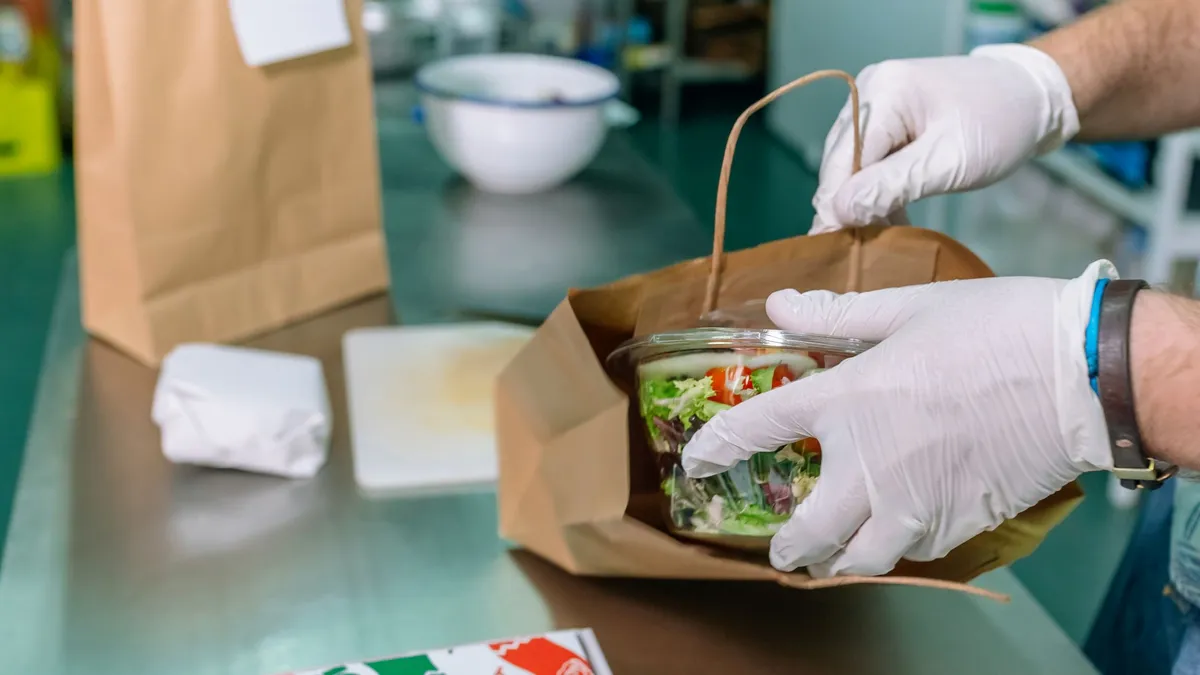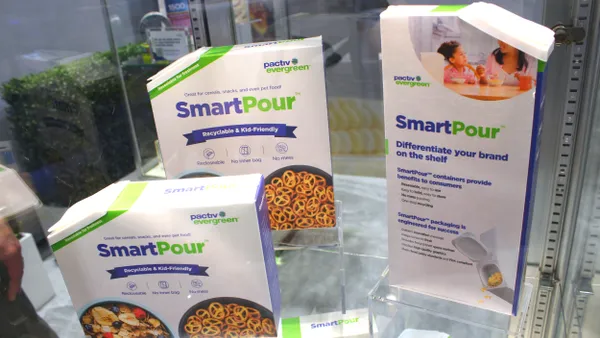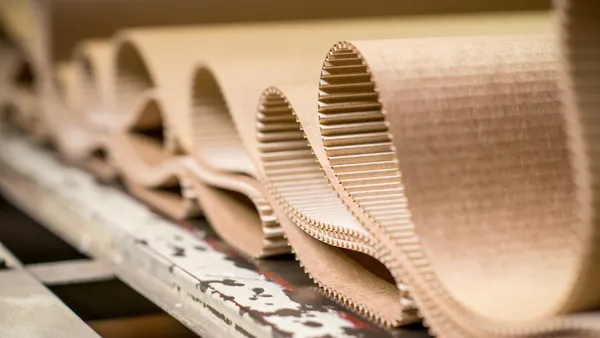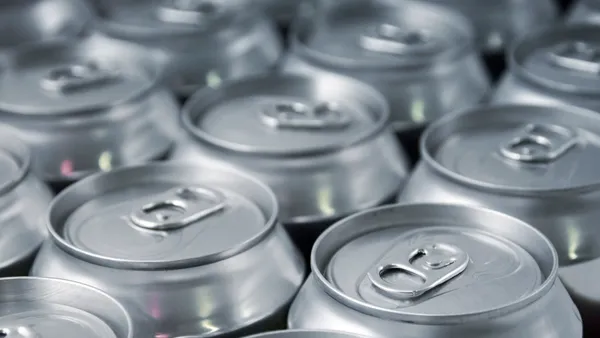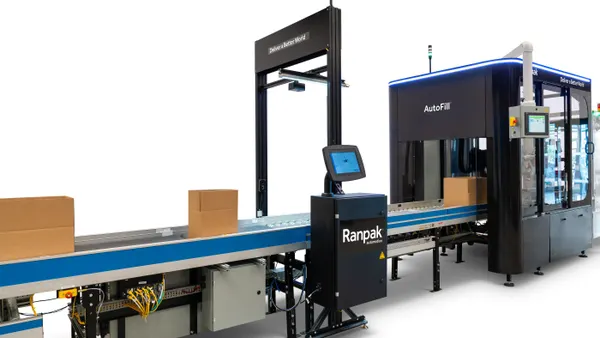Dive Brief:
- This month, CG Roxane, which produces Crystal Geyser Alpine Spring Water, began operations at its second in-house recycled PET plant. The Benton, Tennessee, facility joins the original facility in San Bernardino, California, which began production in 2019.
- Starting this month, all Crystal Geyser Alpine Spring water bottles are made from at least 50% rPET, which is expected to mitigate nearly 33,000 metric tons of carbon dioxide emissions annually.
- Today the company also launched an educational campaign to inform consumers about the plastic recycling process and their role in it.
Dive Insight:
CG Roxane completed construction on the new rPET plant in December, and it is now fully operational. Manufacturing rPET in-house gives the company direct oversight of material production and also gives greater control in feedstock procurement, said Luke Genthe, CG Roxane special projects engineer, via email.
“By producing our own rPET we’re not only reducing waste and overall carbon emissions, but proving our commitment to sustainable stewardship,” he said. “We are able to produce what we need so we’ve been able to improve and increase the rPET production rate since the program’s inception. We also have so far been able to mitigate the supply chain issues and changes that many companies have experienced in the past few years.”
Generally, beverage brands source rPET from dedicated converters rather than making it themselves. Increased demand for recycled material has prompted more rPET facility openings and expansions recently, including from Circularix, D&W Fine Pack, Phoenix Technologies and Revalyu Resources.
At least one other bottled water company, Ice River Sustainable Solutions, makes its own rPET. The Canadian company says it produces bottles with 100% recycled plastic.
CG Roxane says its 50% rPET content puts it ahead of the curve, considering the forthcoming 50% postconsumer recycled content mandate for beverage containers in California — which is ahead of most states — takes effect in 2030. Similarly, Washington state’s law requires 50% recycled content in plastic beverage containers by 2031, and New Jersey’s requires 50% by 2045.
These laws have the potential to contribute to a recycled material supply crunch in the future as more brands up their recycled content to meet mandates, but this has not been an issue so far, Genthe said. Others industry participants, including at the Association of Plastics Recyclers, have been raising the red flag about lagging supply and the need for greater material access to meet brands’ minimum recycled content commitments.
“The recycling industry has a hard limit of available feedstock based on how much people recycle,” Genthe said. “There is also large variability from supplier to supplier of how clean the PET flake is, thereby creating difficulty on our end in maintaining our rigid quality control parameters.”



